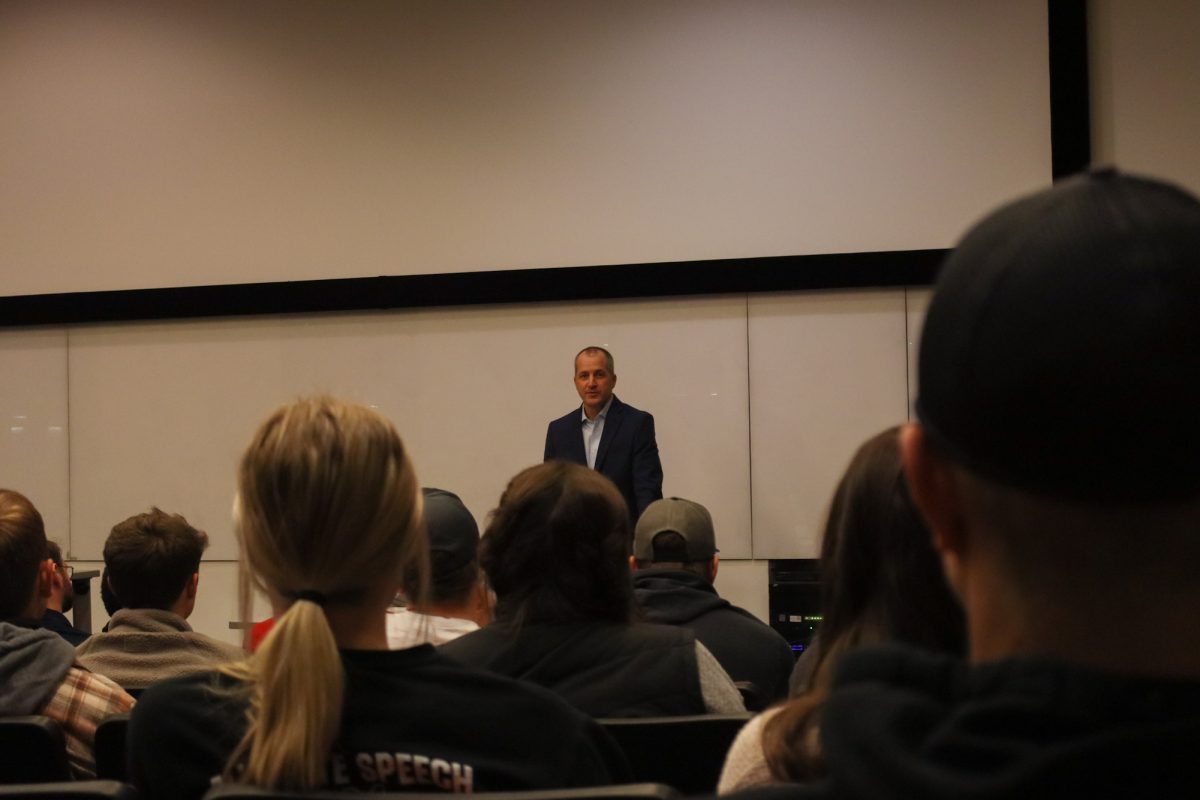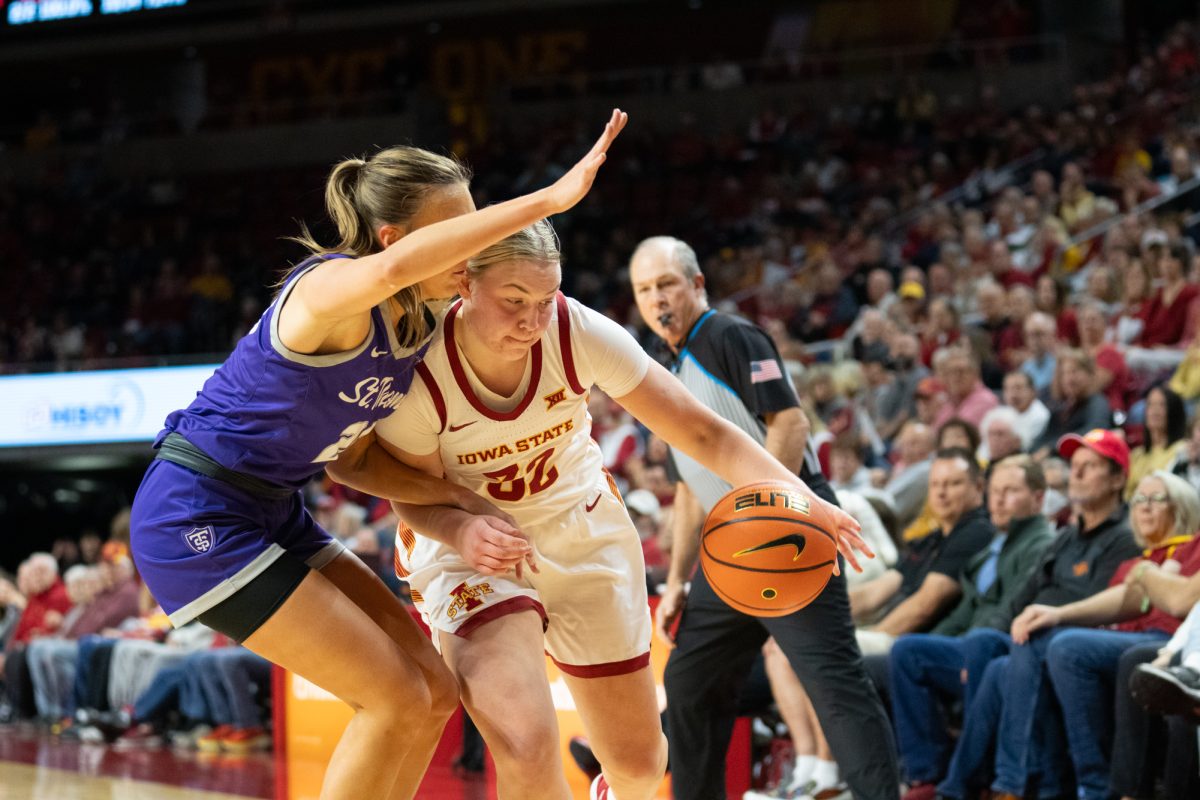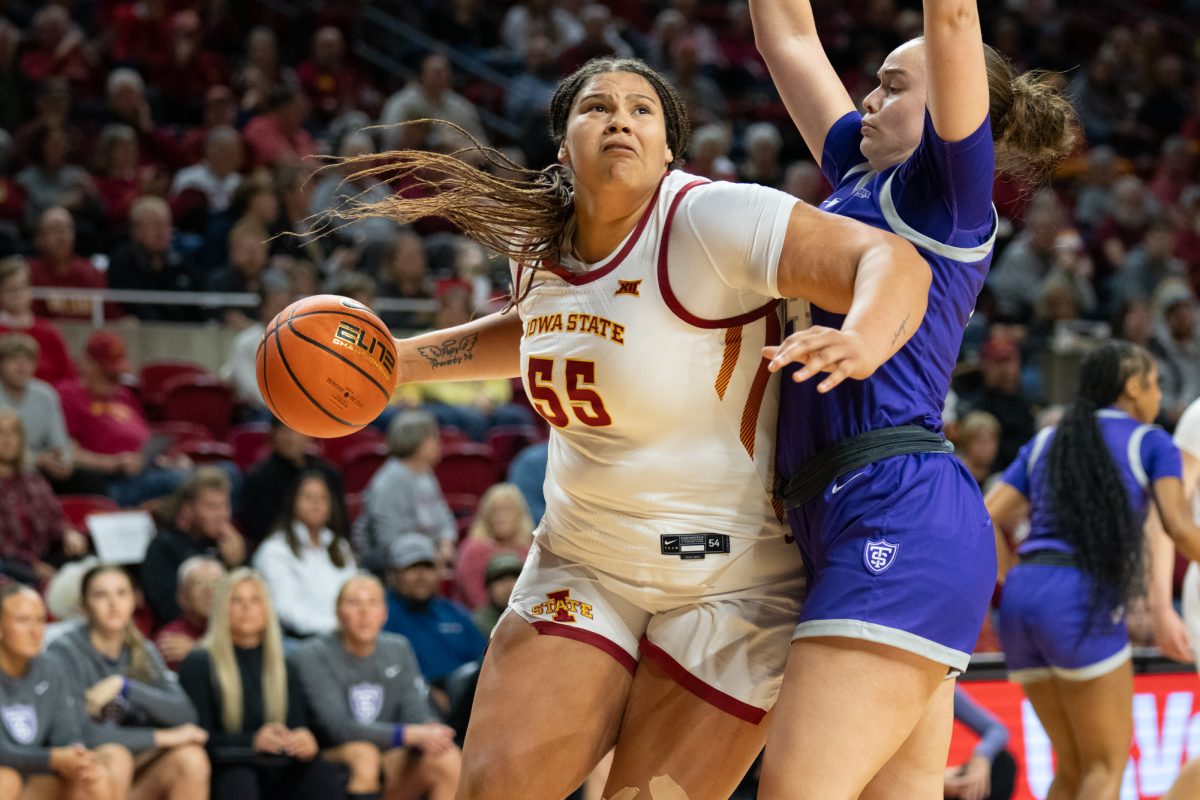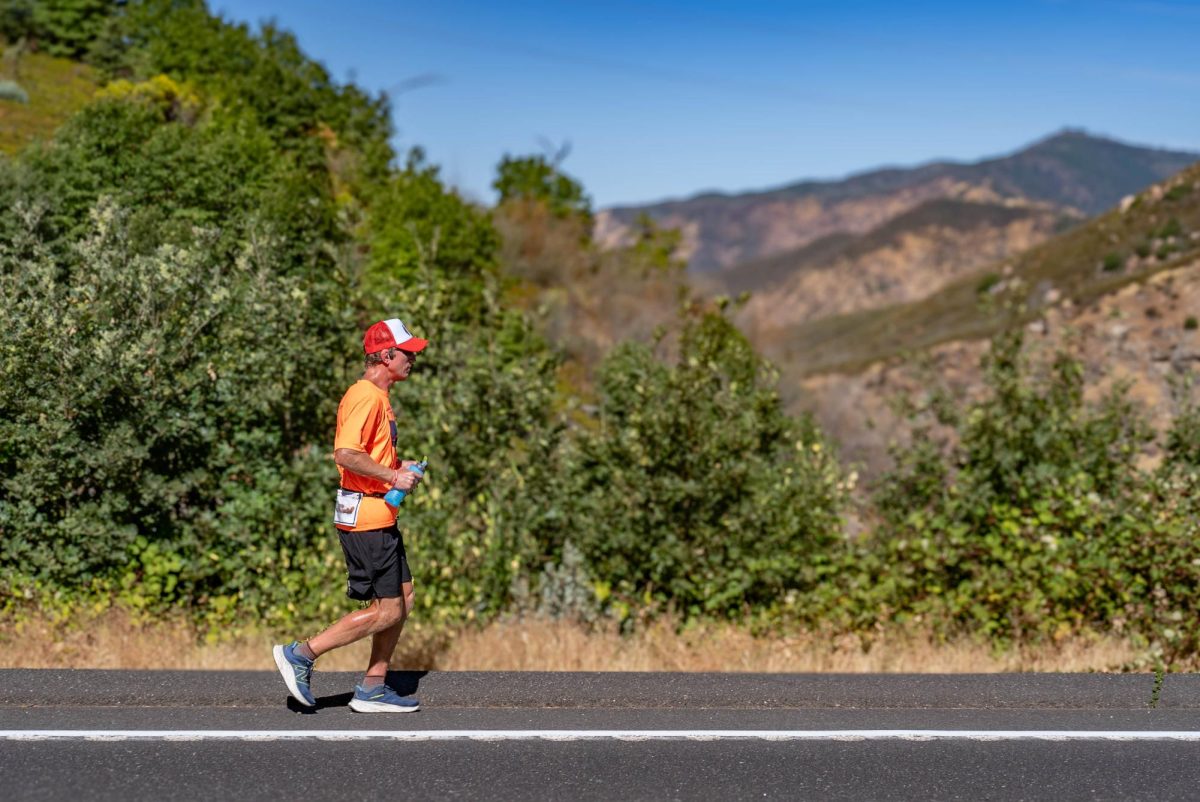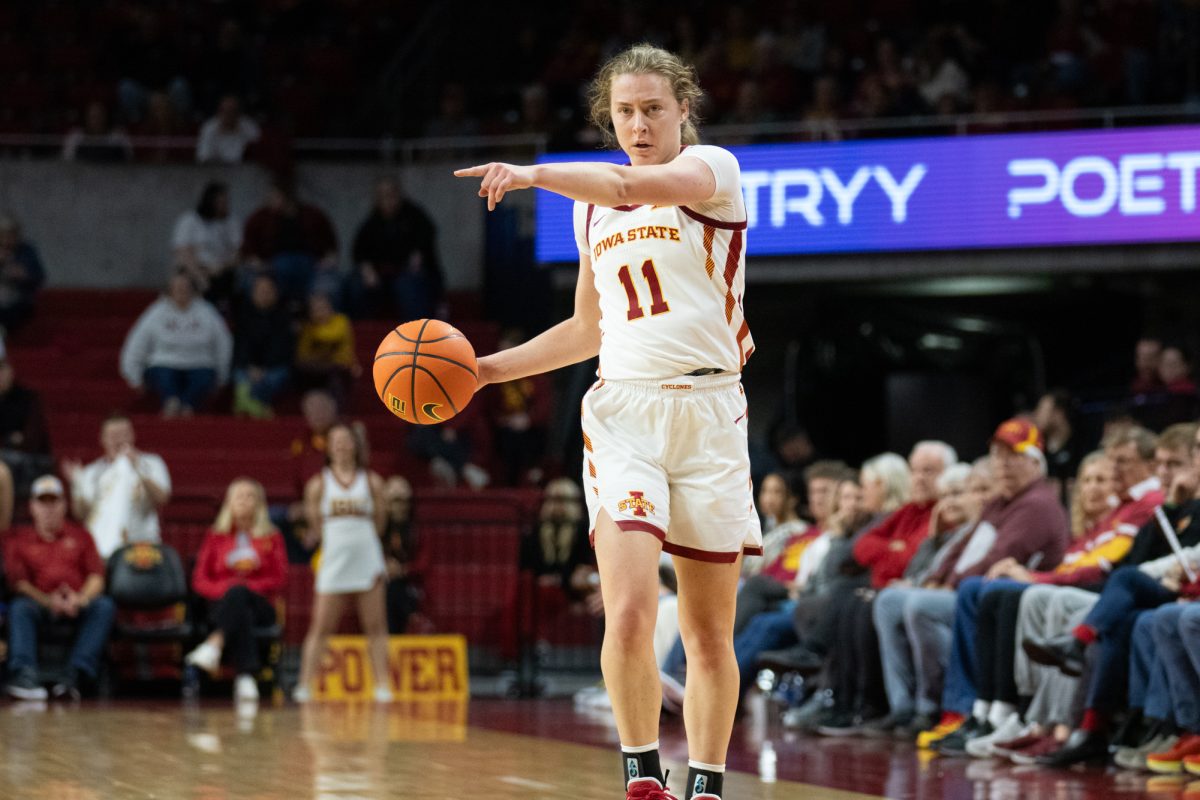Vet Med Dean receives award for 30 years of research on swine diseases
June 12, 1996
Dr. Richard Ross, dean of the College of Veterinary Medicine at Iowa State, wants to cure what ails sick pigs.
Ross is currently doing research on identifying molecules that mycoplasmas — microorganisms that are smaller than bacteria, but larger than viruses — use to attach to the lining of the lungs of swine. He said one of these molecules is important in making vaccines to protect pigs from these microorganisms.
It is more difficult for scientists to make vaccines against mycoplasmas, Ross said. “It is a complex process, developing a vaccine, so we need to understand more about how the organism causes the disease.”
Mycoplasmal diseases can retard growth in pigs, Ross said. “Pigs require more feed to get to market and the infection predisposes the pig to other infections.”
Although mycoplasmas generally are not fatal, Ross said swine deaths can occur indirectly if pigs get other diseases as a consequence of mycoplasmal infection.
Prem Paul, associate dean for research at the College of Veterinary Medicine estimates that Ross’ 30 years of research on mycoplasmal diseases and vaccines has saved U.S. swine producers between $25 million and $50 million annually.
Ross’ work has not gone unnoticed. He recently received the Secretary of Agriculture’s Award for Personal and Professional Achievement for his work on detecting, controlling and preventing swine respiratory diseases caused by mycoplasmas. The award was presented to Ross by Agriculture Secretary Dan Glickman at a ceremony in Washington, D.C. on June 5.
Ross said he was not expecting to receive the award.
“I was dumbfounded,” he said. “I didn’t have a clue. I am very grateful to the people who nominated me, but there are a lot of people who deserve recognition.”
Ross, a native of West Chester, Iowa, earned his D.V.M. at ISU in 1959. He also holds an M.S. and a Ph. D. in veterinary bacteriology from ISU. He has been at Iowa State for 34 years and has been dean of the College of Veterinary Medicine for the past 3 years. In 1982, he was named the Clarence Hartley Covault Distinguished Professor in Veterinary Medicine.


